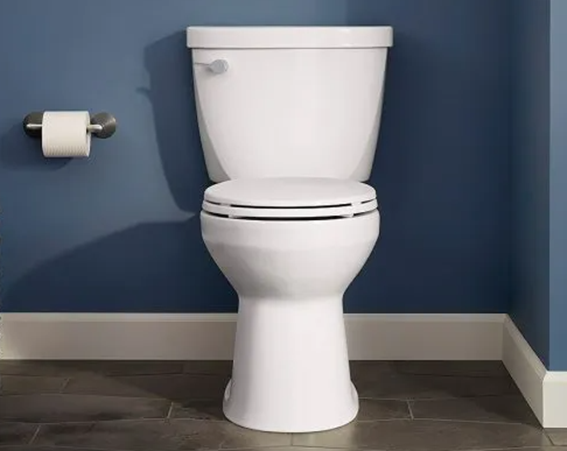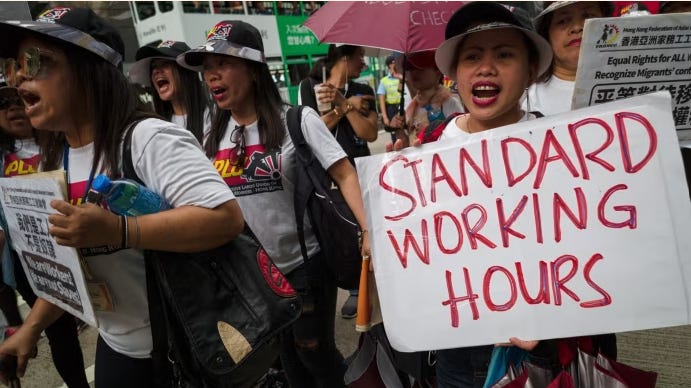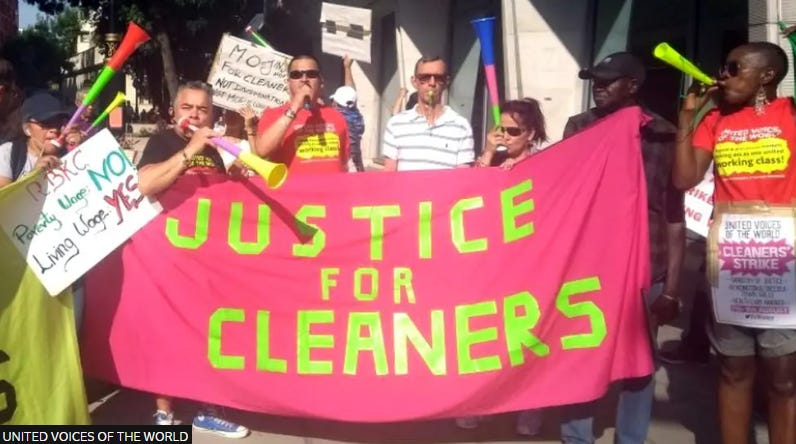The satisfaction of a clean toilet.
Cleaning a toilet is strangely satisfying. A dirty job of course. A bit smelly too. But a discrete task, with a beginning, a middle and an end. One that does not involve Teams or Zoom calls, or egos and negotiation. To be done practising mindfulness, or whilst listening to your favourite podcast. It doesn’t take long at all, and when it is done, you can step back, satisfied, and admire the sparkling, sweet smelling fruits of your labour. Well at least until your teenage son barges in the door.
I wonder how many reading this have recently cleaned their toilet? Sadly, even in today’s more gender equal world, I suspect a significantly more female readers than male will answer yes. So much more of the burden of everyday, unpaid work like the cleaning of our houses, or the cooking, or the caring for children, still falls on the shoulders of women and not men.
I think probably quite a few readers, male and female, would answer no because they pay someone else to do it, employing a cleaner, or house help of some sort. Often, in my experience, it seems that at times that the unequal burden of unpaid care between couples is solved not by the man doing more, but by outsourcing the work to someone else. This person is in turn highly likely to be a woman, and probably a woman of colour, or an immigrant, or both.
Principles can fade in the face of multiple toilets to clean
When I lived in Malawi, a very self-righteous 28-year-old, I steadfastly refused to pay anyone to do my domestic work. We washed all our clothes by hand in the bath and cleaned our one toilet. The electrics were broken in our teacher’s accommodation, so that unless you wore shoes the hot tap gave you a nasty electric shock, so cleaning was high risk too.
Years later, when I lived with my family in Kenya, it was a different story. We did not have live in servants, as many did, but we had a cleaner, Phylis, who came twice a week. She sadly passed away this summer. I have to say my wife and I both didn’t like it, it felt very uncomfortable, but then we lived in an enormous house with six toilets so the thought of cleaning all those made us even more uncomfortable. There was also a lot of pressure to hire people, and in fact no one could understand why we didn’t have live in staff there all the time as all our Kenyan neighbours did.
Back in the UK, and my eco-anarchist cousin asked a local Facebook chat how much he should pay his cleaner. There followed a long thread with lots of lefty worthy comments about paying the London Living Wage etc, allowing benefits, holidays etc. Knowing my cousin, who is not slow to judge himself (I fear it is a family trait), I jumped in and posted, ‘well alternatively you could just clean your own toilet!’.
I was enjoying the guilty replies and excuses and feeling very self-satisfied when my sister chimed in on the chat, and told me to get off my high horse, as she is a cleaner and without these people, she would not have a job. That put me in my place.
Still though, I thought then and I still feel that there is something deeply wrong about paying someone to clean your toilet.
A logical division of labour, providing jobs?
How many husbands in the past and today have justified their wives’ cleaning of the house based on the fact that they are the main earner, busy at work, and that this is simply an efficient division of labour? In a purely economic sense, they were right, but equally this is only right because of the deep gender inequality and sexism in our societies that made it so.
Equally today, many busy people with demanding jobs and lives, who can afford it, pay someone to clean their toilet for them. This is economically efficient, a clear division of labour. It provides a job too.
Lots of inequality equals lots of servants
But I think it is no coincidence that it tends to be in the most unequal countries that you see this more, where the employment of one or more domestic servants, often living in your house, is still relatively common. Our house in Kenya, built relatively recently, included a small one room, toilet and bathroom for a live in servant, which is very common.
And all over the world these live in domestic workers, especially those who are immigrants, are routinely abused and denied their rights. Some have their passports taken away. Sexual harassment and abuse are a common experience.
In the UK the number of domestic servants peaked in the late 19th century, with approximately 1.6 million women employed as domestic servants in 1881, representing 35% of the female workforce. By the mid-twentieth century this number had dropped dramatically, and live-in servants were largely a thing of the past. This was partly due to changes in gender equality, but also economic inequality, with much better paid jobs and opportunities available to young women than a life of servitude.
In more recent decades, as the UK has become more unequal, the number of domestic workers is again on the rise. It is not all about economic inequality, populations are aging, more caring is required, and cuts to public services are having an impact. As we learned in the pandemic, cleaners are among the most important workers in the economy.
But rising inequality is also part of the issue. There are no easy answers to this. Busy stressed couples with busy lives, hiring a cleaner to come once a week to help them hold things together are hardly the leisure classes of Downton Abbey. Millions living like my sister having to take on a cleaning job on top of your other job to pay the bills are glad of the work. Especially if means you can work for yourself, and often choose your hours too, and can pay better than other jobs.
But despite this, it does worry me deeply that we can live in societies where it makes sense for a small group of people to pay other people to do their domestic work. It is not a good thing; it is a sign of a society that is fundamentally far too unequal. I want to live in a more equal world, where everyone cleans their own toilet.
ENDS.
Author: Max Lawson, Head of Inequality Policy at Oxfam International and EQUALS podcast co-host. He is also a visiting Professor in Practice at the LSE International Inequalities Institute and the co-chair of the Global People’s Medicines Alliance.
Listen to our latest episode featuring a multi-millionaire Joao Paulo on why we don’t need billionaires as a society and the need for a wealth cap.
Read our latest bulletin, shedding light on the carbon inequality.
Subscribe and watch out for a new EQUALS episode coming out next week Tuesday.
Always remember to share and follow us on X and on LinkedIn.






